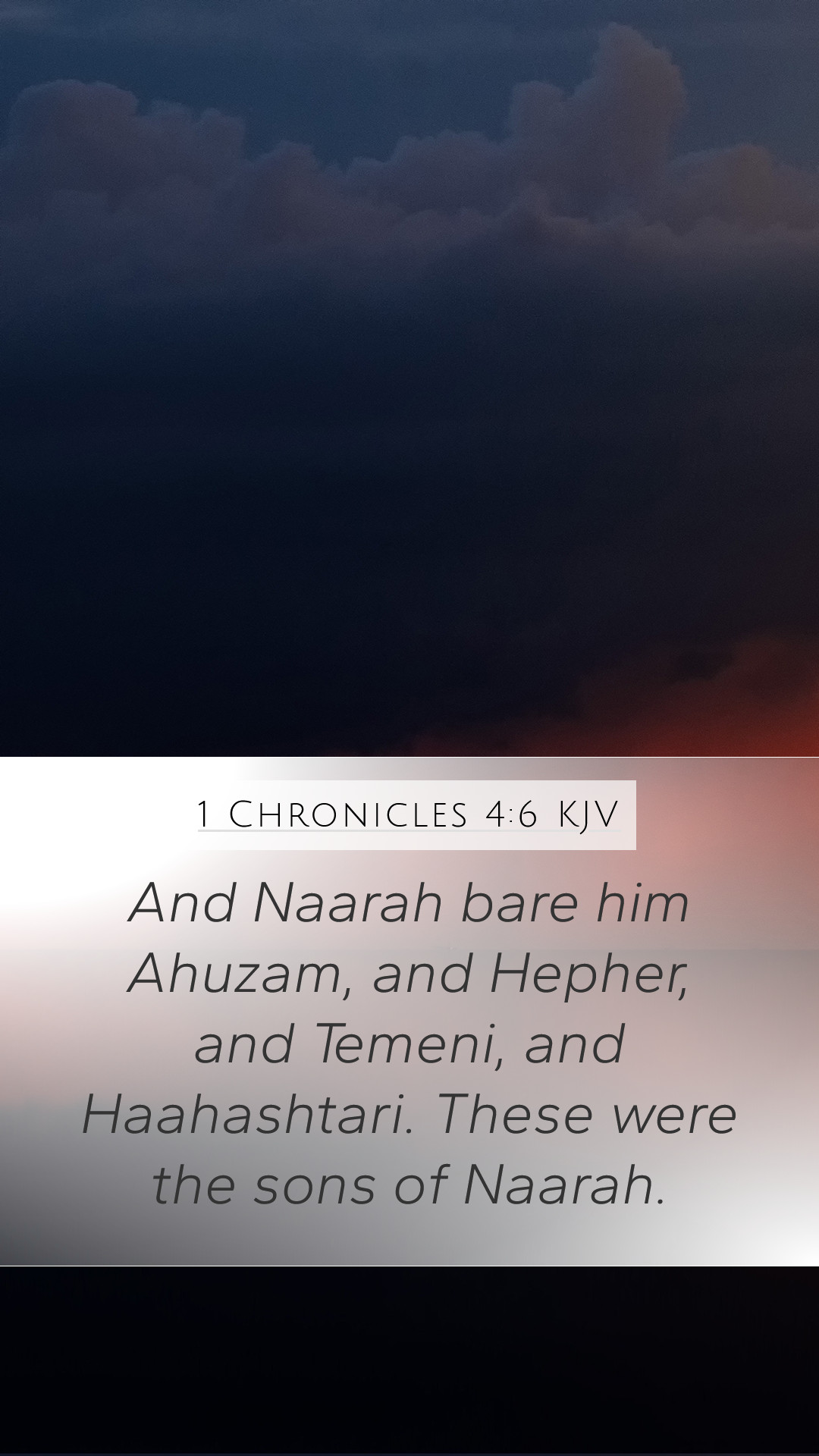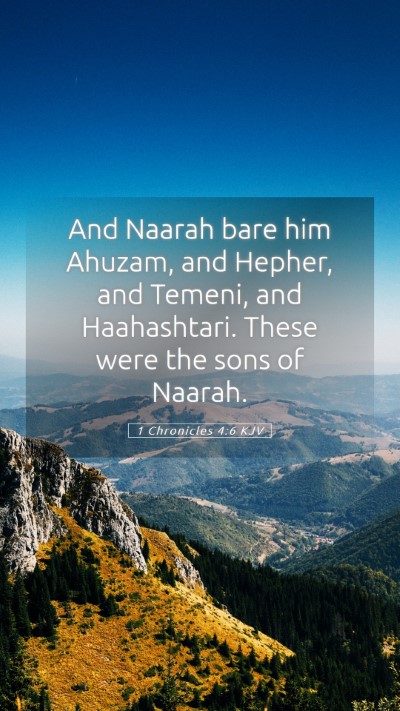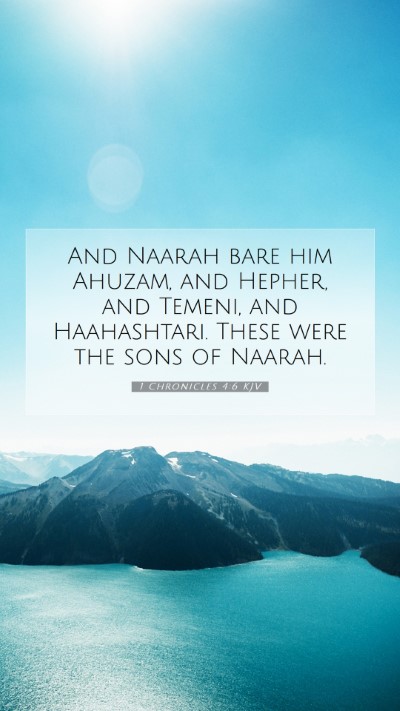Understanding 1 Chronicles 4:6
1 Chronicles 4:6 states: "And Nadab and Abihu died, when they offered strange fire before the LORD." This verse, while succinct, provides significant insight into the nature of worship and God's holiness. Below are interpretations and insights from esteemed public domain commentaries.
Scripture Analysis
The context of this verse revolves around the descendants of Judah. The mention of Nadab and Abihu here highlights an incident that emphasizes God's expectations regarding worship and reverence. This verse serves as a cautionary reminder of the consequences of deviating from divinely prescribed worship practices.
Matthew Henry's Commentary
Matthew Henry elaborates on the tragic death of Nadab and Abihu, emphasizing that their offering of "strange fire" constituted a grave offense against God. Henry suggests that this act was not merely a mistake but an intentional disregard for the prescribed rituals of worship. The idea of 'strange fire' indicates a deviation from God’s commands and demonstrates the seriousness with which God regards His statutes.
Albert Barnes' Notes
Albert Barnes provides additional theological depth, asserting that Nadab and Abihu's actions serve as a powerful reminder about the holiness of God. According to Barnes, their death was not an arbitrary punishment but a necessary upholding of divine law. This incident serves as a warning for all believers regarding the importance of adhering strictly to God’s commands and the seriousness of their responsibility in worship.
Adam Clarke's Commentary
Adam Clarke offers a historical perspective, placing the events in the broader narrative of Aaron's priestly lineage. Clarke indicates that their error highlights the dangerous assumption that any form of worship is acceptable to God. He emphasizes that worship should stem from a sincere heart and alignment with God’s word. Clarke also underlines the importance of proper instruction in worship practices, suggesting that ignorance of God's statutes does not excuse one from accountability.
Key Themes and Insights
- The Holiness of God: The deaths of Nadab and Abihu underscore the intense holiness of God and the seriousness of approaching Him in worship.
- Consequences of Disobedience: This scripture serves as a biblical exegesis on the ramifications of disobeying God's commands, particularly in spiritual practices.
- Importance of Correct Worship: Understanding the 'strange fire' indicates that worship must align with God’s prescribed methods; otherwise, it is rendered void.
- Need for Instruction: This narrative emphasizes the necessity for proper teaching regarding God's worship as a safeguard against error.
Application to Daily Life
The explanation of 1 Chronicles 4:6 presents vital lessons for contemporary believers. In applying the meaning of this verse to daily life, Christians are encouraged to evaluate their forms of worship critically, ensuring they are rooted in biblical truth and obedience.
Believers are reminded of the importance of maintaining reverence towards God, particularly in corporate worship settings, and being mindful of the heart's condition in approaching God. The significance of worshiping in spirit and truth cannot be overstated, as indicated in John 4:24.
Additional Bible Cross-References
- Leviticus 10:1-3: A direct reference to the incident involving Nadab and Abihu, providing further details.
- Hebrews 12:28-29: Emphasizes the call to worship God acceptably with reverence and awe.
- Exodus 30:9: Mentions the prohibition against offering unauthorized incense before the Lord.
Conclusion
The insights gathered from public domain commentaries enrich the understanding of 1 Chronicles 4:6, enhancing one's engagement with the scripture. This information serves as a valuable resource for anyone participating in Bible study groups, engaging in online Bible study, or seeking Bible study tools. The depth of meaning in this verse encourages believers to pursue deeper biblical study insights and understanding of Scripture.


